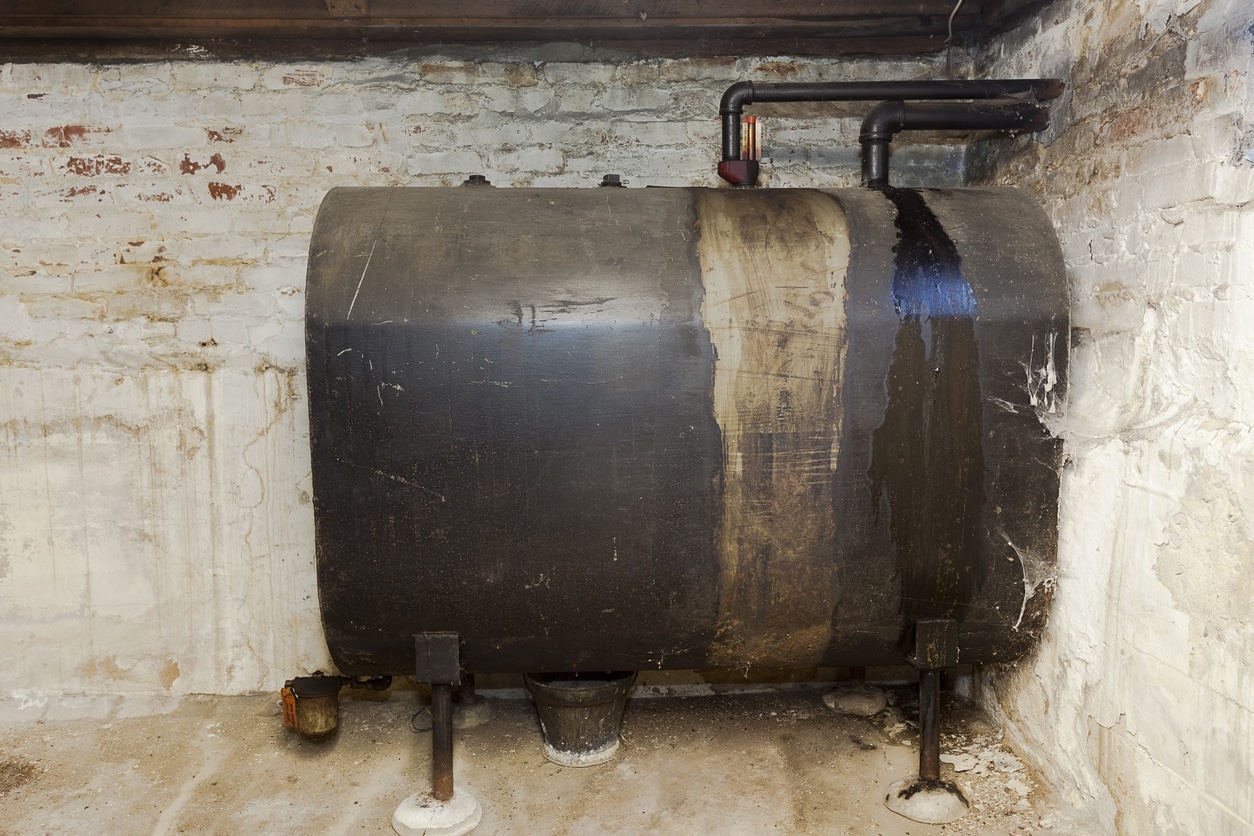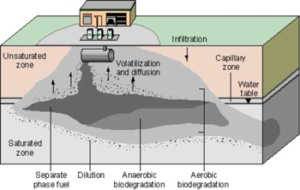HOT Homes: Must Know Heating Oil Tanks Facts

Heating oil was once a popular way to heat homes and buildings in Portland, but most are now using electricity or natural gas. However, the legacy of heating oil remains in the form of underground tanks that were used to store the oil on site, especially in homes built prior to 1965. Some of these tanks are the source of toxic ground contamination, which can also emit fumes into the air.
According to the Oregon Department of Environmental Quality, there are 27,308 permanently decommissioned Heating Oil Tanks, or HOTs, buried underground across the state. Tens of thousands more are still in operation (both above and below ground), heating homes today. Plus many thousands more are sitting abandoned underground (some leaking oil and some not) and no one knows they are there!

Should my oil tank be re-decommissioned?
“Decommissioning” a HOT is a three-step process:
- Emptying and cleaning the oil tank.
- Filling it with dirt or removing it from the ground.
- Testing the soil to see if any leaks occurred while the tank was in use.
If the tank has leaked, extensive soil removal may be necessary. DEQ keeps two lists of sites where HOT decommissionings have occurred: Those that were “clean” without a leak, and those where a leak was discovered and remediation (soil removal) was necessary. However, the lists only go back to the year 2000, so there might not be much information available on a previously decommissioned tank. In addition, decommissionings done prior to 2009 may not have removed all the toxic soil from the site. That’s because two carcinogens present in heating oil were not classified as such until that year.
For those decommissionings that were registered with the DEQ, you can request a copy of the report detailing the process, including the types of chemicals found in the soil.
In cases where no further information is available, a buyer may request a new HOT search and re-decommissioning. However, home sellers are under no obligation to pay for these services.
What are the seller’s requirements for HOTs?
- For aboveground tanks currently in use, if there are no leaks or spills around the tank, no action is required.
- For underground tanks, or any tank no longer in use, you must ensure that there is no oil in the tank. If you don’t know of any tanks on the property, you are not required to search for one.
- For known tanks no longer in use, you must provide documentation that the tank has been emptied, which could be a dated receipt from the company that emptied it, or the receipt from the oil recycling company if you emptied it yourself.
- If any oil has leaked from a tank, in use or unused, you are responsible for the cleanup.
What should buyers know about HOTS?
- Active HOTs should be checked for leaks, and soil around the HOT should be checked for residue of spills that may of occurred when filling the tank.
- Old tanks should be decommissioned, not just emptied of oil. This means testing the soil and removing it if necessary.
- If the seller doesn’t know of a HOT on site or hasn’t disclosed one, it may be worth hiring a professional to search for one if it’s an older home. Search for Heating Oil Tank Search in your area and there are many providers to choose from. You can also check the DEQ’s decommissioning list to see if other tanks were decommissioned in the area, and look for obvious signs of a HOT yourself, such as aboveground vent or fill pipes.
- According to the DEQ, “The current owner of the property is responsible for any necessary cleanup even if the leak happened before he or she bought the property. If you buy property knowing that a tank is present and no work has been done to determine if it has leaked, you also become responsible for any leaks discovered in the future. You then would have to contact an attorney for advice if you wanted to recover any costs from the prior owner.”
Do you have an informed real estate agent that can help you navigate buying or selling a home with potential hazards? Our team of local experts will help you do it right -– contact us today.


